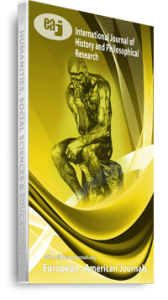The colonization of Algeria lasted for one hundred thirty-two years. The war that broke up on November 1, 1954, cost much blood, 1.5 million people killed. At this juncture, the colonized regarded Western colonialism, in general, French one, in particular as a system with undeniable damaging effects. In these recent years, however, there has been much talk in progress, both in the settler country and in the formerly colonized. This talk is about a presumed positive role. In other words, a new political discourse and a new literature aiming at justifying and sanctifying the role and the impact of colonialism is coming to the fore. The colonists, having never given up yearning for Paradise Lost, are seeing to rehabilitate what they consider a distorted image of colonialism. Their main argument is grounded in the fact that it had unquestionably been beneficial not only to them but also to the natives. In short, the argument lies in that the civilizing mission proved a success. Likewise, in Algeria, a population, mainly young, born after independence, and which can only guess the far reaching consequences of such a system, is led to think that its embrace would have enabled it not to miss the rendez-vous with modernity. To put it simply, the widespread idea among these youth lies in that having driven the colonists out of the country has affected the country in all domains. This article looks at this colonial nostalgia with Algeria as a case study. This has been done by examining the writings of pros and cons concerning this nostalgia.
Keywords: Algeria, Colonialism, Nostalgia

